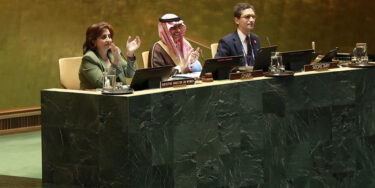Why Domestic Violence Still Plagues Morocco
20.02.16
By Daria Etezadi
The Moroccan woman was 21 when she first laid eyes on the man who would become her husband. She saw the handsome 24-year-old in a photograph presented by his parents. That was three years ago, when she was still a student. Within a year, S.S., who did not want her name used, had dropped out of her university classes, forced by her father to marry the man. Shortly after the wedding, S.S. says the beatings and rapes began.
“The whole time I just thought about killing myself,” she says. “There is no law that will help me sue my husband for the things that he did. So he always gets away with it.”
Morocco is hailed as one of the most progressive Muslim countries in the Middle East and North Africa (MENA) region. Yet despite amendments made to the Family Code in 2004 that increased women’s rights, domestic violence is still not a crime.
A bill addressing violence against women [VAW] in Morocco had been in limbo for more than 10 years when, on March 17, lawmakers finally took up the issue and passed the bill. But there are detractors, including some unexpected ones: Nongovernmental organizations that have long lobbied for legislation to protect women opposed the bill, saying it fails to address the urgent needs of Moroccan women.




